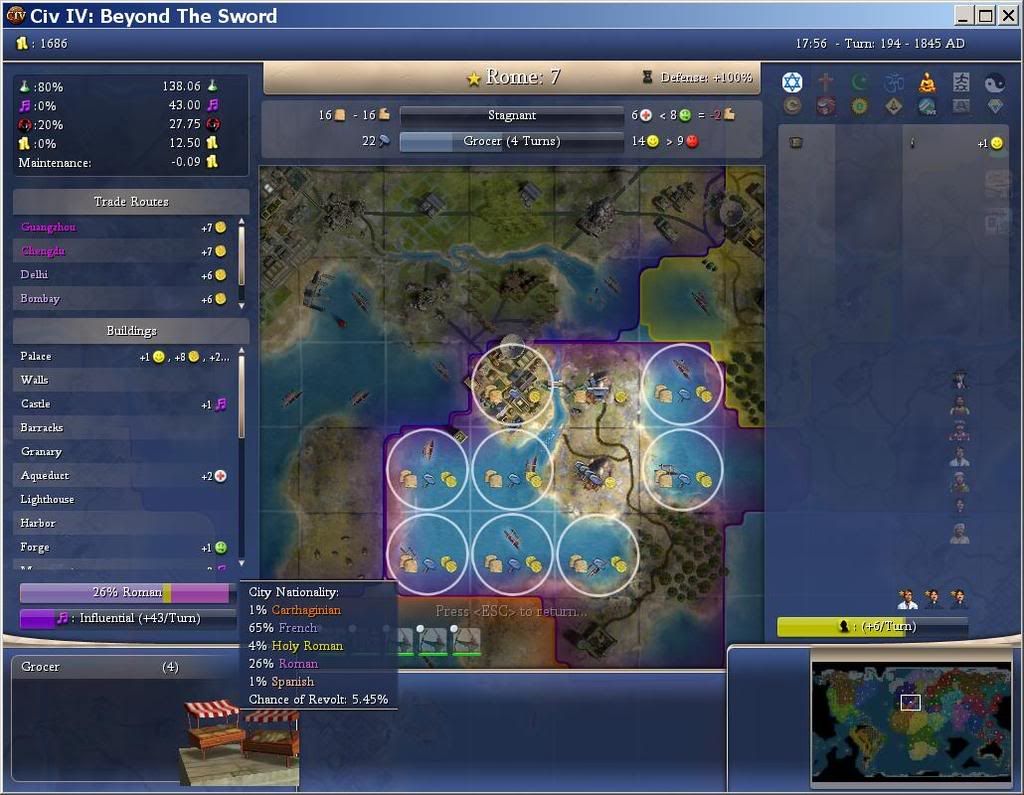syrnas,
A little bit more about this:
As your city increases its boarders, the outer rings are the weakest culturally, and the inner rings are the strongest. In order to take over another city via culture, your outer rings must be stronger than their city core. In some situations this can take a LOT of culture!
If you go into your city screen, you can see what the makeup of your population is. The picture below is from a game where I was playing around with culture. I was the French, and I had enough Espionage Points to see the inner-workings of Rome. Here I am, spying on the Romans:
As you can see, 65% of the city makeup is French, where as only 26% are Romans. Also, you can see where the game tells you that each turn there will be a chance to revolt. In this case, there will be a 5.45% chance to revolt. (Note: If there is no chance of revolting, there will be no percentage displayed here.) (2nd Note: Slavery revolts have nothing to do with culture revolts. Under the Slavery Labor Civic there is always a chance of a revolt in your capital.) If the city revolts too many times (I think two times in so many turns) then the city will "culture flip" to France.
Oh yeah, one more thing. Culture is cumulative. Meaning if I have two of my own cities and one rival producing the same amount of culture onto the same tile, I will produce culture twice as fast as my rival. Paris was producing about 800 culture per turn by the end of this game, however Rome was in France's outer most ring. I also had another city (closer to Rome) producing a few hundred culture as well. Rome was being pushed on by Paris's outer ring, and the closer city at the same time.

 .
.

 .
. 